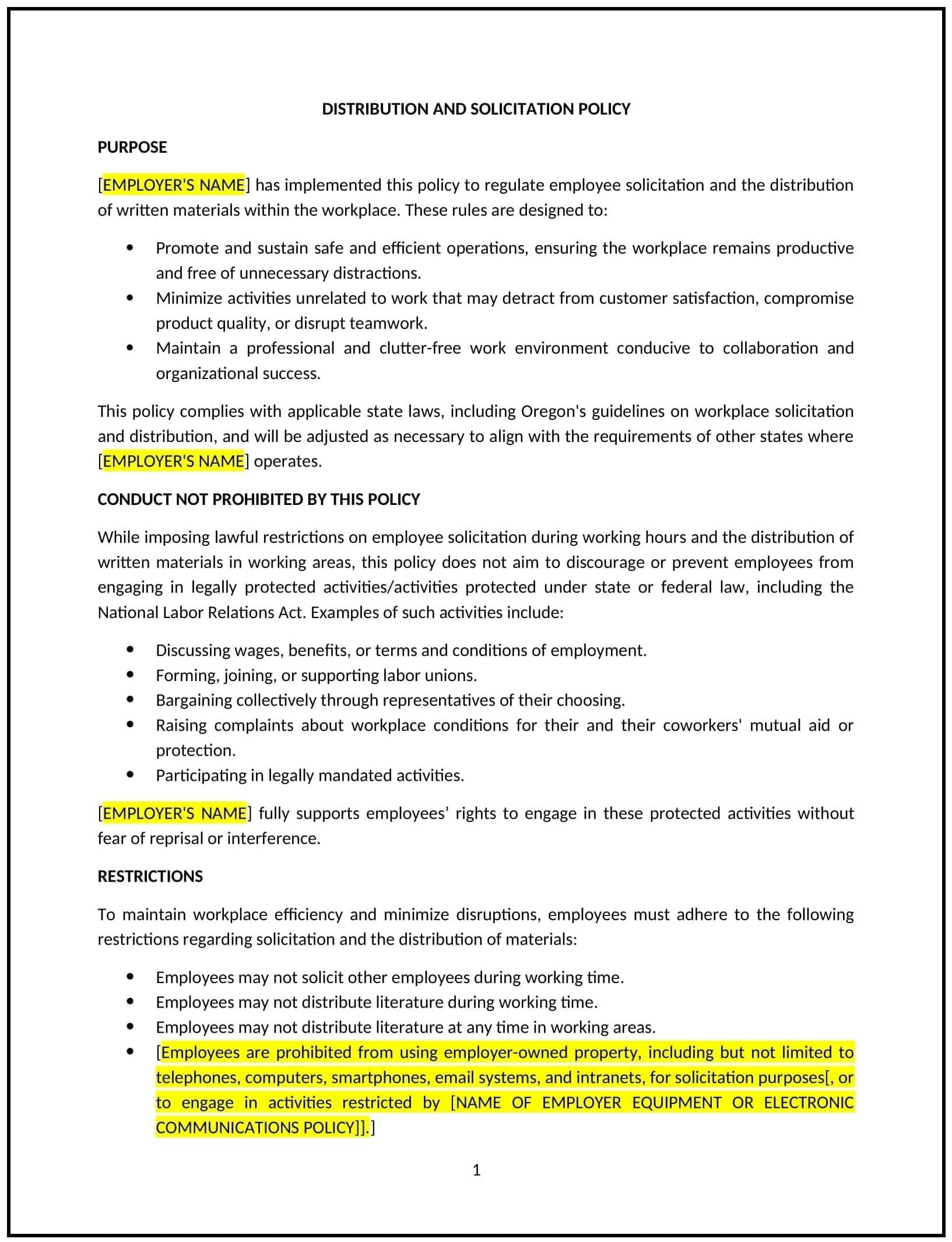Distribution and solicitation policy (Oregon): Free template
Got contracts to review? While you're here for policies, let Cobrief make contract review effortless—start your free review now.

Customize this template for free
Distribution and solicitation policy (Oregon)
This distribution and solicitation policy is designed to help Oregon businesses regulate the distribution of materials and solicitation activities in the workplace. It outlines guidelines for maintaining a professional environment while respecting employee rights.
By adopting this policy, businesses can minimize disruptions, protect company resources, and align with Oregon labor laws.
How to use this distribution and solicitation policy (Oregon)
- Define prohibited activities: Specify activities that are not allowed, such as distributing non-work-related materials during work hours.
- Establish permitted activities: Outline activities that are allowed, such as distributing union materials during non-work hours.
- Set guidelines for external parties: Provide rules for third-party solicitation or distribution on company premises.
- Communicate the policy: Share the policy with employees and include it in the employee handbook.
- Train managers: Educate supervisors on enforcing the policy and addressing violations.
- Monitor compliance: Regularly review workplace activities to ensure adherence to the policy.
- Update regularly: Assess the policy annually to align with evolving business needs and legal standards.
Benefits of using this distribution and solicitation policy (Oregon)
This policy offers several advantages for Oregon businesses:
- Minimizes disruptions: Helps maintain a professional and focused work environment.
- Protects company resources: Prevents misuse of company time, equipment, or facilities.
- Aligns with labor laws: Promotes compliance with Oregon labor laws regarding workplace solicitation and distribution.
- Enhances productivity: Reduces distractions and ensures employees remain focused on work tasks.
- Clarifies expectations: Provides clear guidelines for employees and third parties.
Tips for using this distribution and solicitation policy (Oregon)
- Communicate the policy: Share the policy with employees and include it in the employee handbook.
- Provide training: Educate managers on enforcing the policy and addressing violations.
- Use signage: Post notices in common areas to remind employees and visitors of the policy.
- Monitor compliance: Regularly review workplace activities to ensure adherence to the policy.
- Update regularly: Assess the policy annually to align with evolving business needs and legal standards.